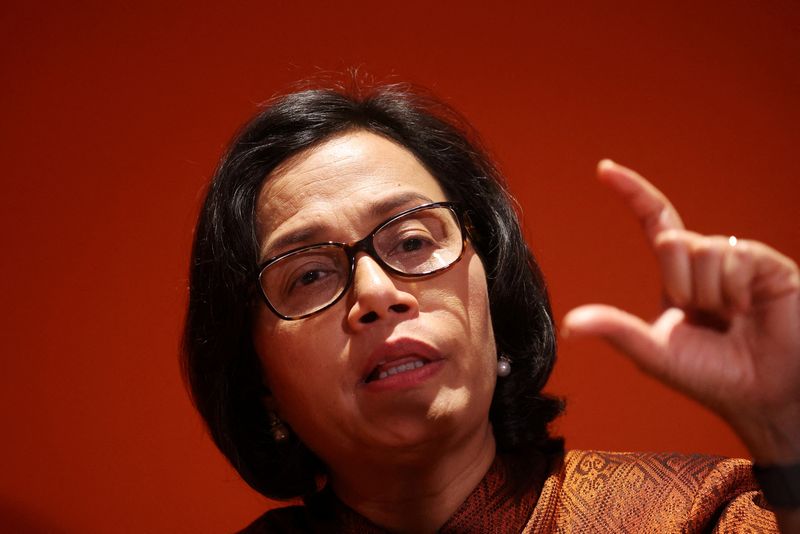Indonesia Finance Minister sees Q2 GDP growth at 5%, flags geopolitical risks

By Gayatri Suroyo and Bernadette Christina
JAKARTA (Reuters) -Indonesia’s economic growth probably slowed slightly to 5% in the second quarter and authorities are monitoring geopolitical developments that could affect the domestic economy, its finance minister said on Friday.
Minister Sri Mulyani Indrawati said household consumption, investment and improving exports had likely driven growth in the April-June quarter. The figure would represent only a slight slowdown from the 5.11% annual expansion Southeast Asia’s economy recorded in the first quarter.
“Going forward, we see that the increase in domestic economic activity will continue until the end of 2024,” she said. “From the fiscal side, the execution of the 2024 budget, particularly on the spending side, will be focused on maintaining price stability.”
For all of 2024, Indonesia’s economic growth is expected to be within a range of 5% to 5.2%, she said.
The minister’s second-quarter estimate is in line with a forecast in a Reuters poll of 24 economists, who pointed to moderating exports and the dampening impact of high interest rates on consumption as factors weighing on growth. The data will be released on Monday.
In a joint press conference with other officials, Sri Mulyani said financial authorities discussed geopolitical developments to anticipate risks that could affect Indonesia’s economy, including tensions in the Middle East, the war in Ukraine and elections in other countries.
She said these risks, as well as global uncertainties regarding the timing of U.S. monetary easing, Washington’s debt plans and Treasury yield curve, will limit capital inflows to emerging markets, including Indonesia.
Speaking at the same event, Bank Indonesia (BI) Governor Perry Warjiyo said that while low inflation created room for lower interest in recent months, the central bank could not cut rates yet because it was focusing on mitigating the spillover impact of global risks on the rupiah exchange rate.

BI had previously anticipated the U.S. Federal Reserve would cut rates in December, but its meeting this week suggested a probability of a rate cut in September, Warjiyo said.
Warjiyo has previously said BI may have room to cut rates in the fourth quarter, after global uncertainties ease






